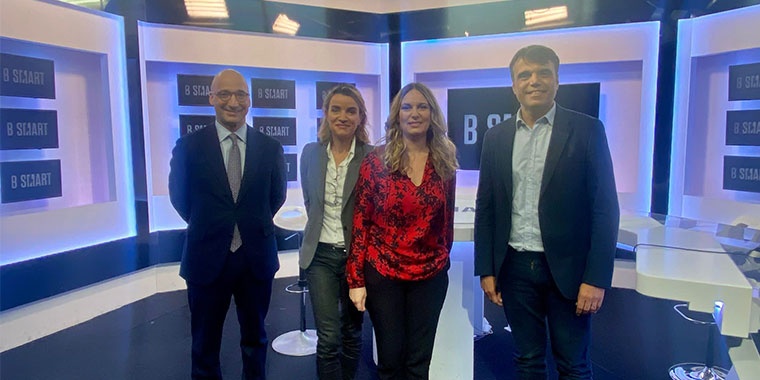
SMART@WORK: what are the governance challenges within medium-sized businesses?
Aired on the BSMART TV channel, the latest SMART@WORK programme addresses the governance challenges within medium-sized businesses. While governance is perceived as a key performance driver, three directors share their experiences.
On this occasion, the journalist Aurélie Planeix hosted:
- Pierre-Olivier Brial, Deputy Chief Executive Officer of the Manutan Group
- Marine Balansard, Executive Director of Ariseal
- Charles Robinet-Duffo, Chief Executive Officer of the Henner group
Marine Balansard opened the programme reminding us that: “behind successful companies are three pillars of governance: shareholders who represent the sovereign authority and own the company’s share capital; general management which determines a strategy and implements decisions; and there is a supervisory body (in any case, this is recommended) which oversees, takes a step back from the decision-makers’ everyday work and brings perspective to decisions."
Because almost 80% of every two medium-sized businesses is a family company, it’s often the founder who leads the company, exercising their authority alone. However, this person does not always have all the necessary skills to face current challenges: the digital revolution, environmental transition, etc. “Companies must change from this hierarchical approach to something more collegiate and horizontal,” explains Marine Balansard.
At the head of the family group, Charles Robinet-Duffo took stock: “my primary governance challenge has been to open management up to the best external talent.” Pierre-Olivier Brial wholeheartedly agreed: “we’re convinced that only collegiality, through diverse perspectives, can enable us to find solutions that one person would not have found.”
In addition to bringing talent together, the company directors concluded that it was necessary to organise the quality of debates. To do so, it is essential to establish a climate of trust and use personal and collective development tools (MBTA, non-violent communication, etc.).
